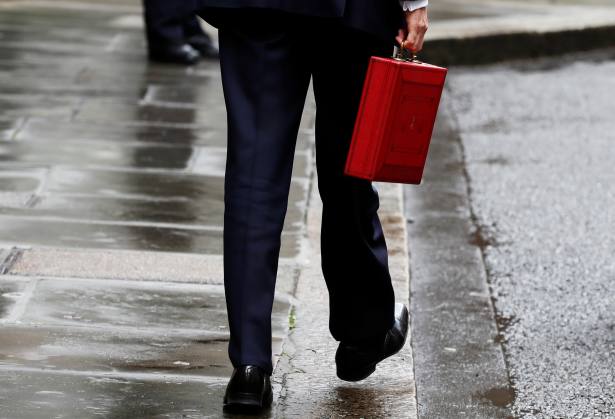Moreover, the OBR has suggested the move means potential tax receipts to the tune of £560m in 2018 to 2019 – which would otherwise have gone to fund projects such as schools and hospitals – will instead be used to subsidise the private housing market.
In the OBR’s report, it expressed surprise there should be tax giveaways in the face of a weaker economic outlook.
It commented: “Faced with a weaker outlook for the economy and the public finances, and growing pressures on public services following years of cuts, the government has chosen to deliver a significant near-term fiscal giveaway.
“This adds £2.7bn to borrowing next year and a larger £9.2bn (0.4 per cent of GDP) in 2019-20.”
Brexit
“We have already invested almost £700m in Brexit preparations”, the chancellor said almost joyfully as he stood to deliver. “And today I am setting aside over the next two years another £3bn.
“And I stand ready to allocate further sums if and when needed”, he added, before moving on to say, “this Budget is about much more than Brexit”.
But Brexit was very much on the minds of market analysts and commentators, especially given the OBR’s focus on it.
Paras Anand, chief investment officer for equities, Europe, at Fidelity International, declares: “It is rare that the most significant announcements in a Budget are not from the chancellors themselves.
“Although expected, the OBR’s downgrade of the outlook for the UK economy, not only near term but over the coming years, reflects a growing consensus that both the process and impact of Brexit will have a negative impact on growth.”
Richard Stone, chief executive of the Share Centre, claims the Budget’s lack of real movement on tax or personal investment showed the chancellor had “relatively little room for manoeuvre”.
According to Mr Stone: “He used what room he did have primarily to increase spending along with some tax cuts – notably through freezing fuel duty increase and removing stamp duty for most first-time buyers.
“He will likely be criticised for finding more funding for Brexit than he has to help solve the challenges faced by those on Universal Credit, and the risks to the UK economy remain heavily centred on the Brexit negotiations.”
Maths
As an aside, Mr Hammond desires the UK to be a hub of mathematical genius, committing £40m to train maths teachers across the country and introducing a maths premium for schools, for every additional pupil who takes A-level or core maths.
“More maths for everyone. Don’t let anyone say I don’t know how to show the nation a good time,” he quipped.







